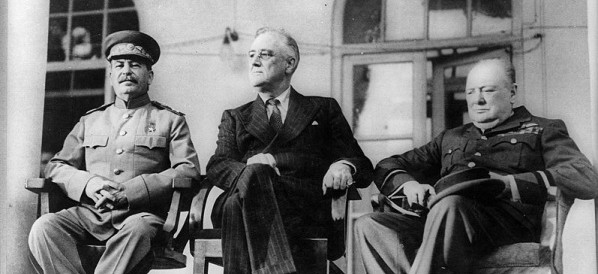 20 Terms
20 TermsHome > Terms > English (EN) > cable television
cable television
Cable was first used in 1948 to send television signals through wire to remote mountainous parts of the United States. Over the decades, the cable television industry has changed from a delivery system for broadcast networks to one whose programming competes with broadcast television—by 1998, cable television attracted a larger monthly viewing audience than the combined broadcast networks. It is estimated that 68 percent of television households subscribe to cable television.
As a telecommunications industry cable television is regulated by the FCC. Since cable companies have to use public land to lay cables, each cable company usually owned by MSOs (Multiple Systems Operators), must negotiate a contract with the municipality which grants an operational monopoly in return for a licensing fee. While various proponents have envisioned competition among cable providers, this has only emerged in the largest cities. Satellites may however, raise a potential challenge.
Given cable’s relationship with communities, these also have demanded that systems provide local programming, as well as public access for citizens. Initially the Telecommunications Act of 1984 required such access, leading to production facilities and channel space for delivery. Cable systems, however, have challenged these requirements, claiming that they violate their 1st Amendment rights.
Cable systems receive their revenue primarily through subscription fees that average around $30 per month in 1999. Many regulatory attempts have sought to control cable subscription fees; however, with the culture of deregulation in the 1990s, they became completely deregulated in 1999. As the industry grows, cable networks are increasingly deriving income from advertising revenues as well.
The cable industry has always claimed that it provides a diversity of choices to the consumer. The number of cable networks has indeed increased from 28 in 1980 to 174 in 1998; by 1998, over 57 percent of all subscribers received 54 channels or more. Home Box Office (HBO) became the nation’s first pay-television network in 1972. The second major network is Ted Turner’s Cable News Network (CNN), now a division of Time Warner. Other major cable networks include MTV, ESPN, TNN, C-Span, the Weather Channel and A&E. These networks televise news, music, sports, public affairs, cooking, children’s television, science fiction, women’s programming, etc. 24-hours a day to their subscribers. Cable includes niches for Spanish-language broadcasting (for example, Univisión) and other ethnic programming (for example, BET).
Cable claims to provide a great deal of family and children’s programming to its subscribers, through educational and specialized channels (for example, Nickelodeon, Disney, the FOX Family channel). Providers also have attempted direct partnerships with schools, with programs like Cable High Speed Education Connection, which provide programming and cable Internet access to K-12 schools which allow them in. Cable programming has wider impacts. A 24-hour cable news channel, highlighted during CNN’s 1980 Gulf War coverage, has changed the landscape of news reporting. Broadcast network television news divisions are loosing viewership and money. News has become more immediate, although some blame the immediacy for a lack of in-depth reporting. ESPN and other sports media have not only offered more traditional sports, but have fostered growing audiences for soccer, women’s sports and alternative sports/recreations (for example, cheerleading).
HBO, being a premium channel where subscribers pay extra to receive its signals, has showcased Hollywood and produced quality programming that has won frequent Emmy Awards. Cable television also gave birth to television home shopping with QVC and the Home Shopping Channel. These networks provide a friendly homely environment onscreen, hawking all kinds of products to the audience/customers, who also call in and chat with hosts and celebrities.
This so-called diversity of choice is also a manifestation of niche marketing where products are targeted and produced, no longer for mass consumers, but for particular kinds of consumers. MTV, for example, promotes the importance of the teen and youth market, which is perceived to have a great deal of disposable income.
Cable networks like CNN and MTV are not simply American, but global. CNN can be watched in virtually all luxury hotels in the world, and MTV, with slight modifications, has global pop affiliates. While programming is adapted to world and regional audiences, an American story like the death of John F. Kennedy, Jr. dominated CNN worldwide.
In the late 1990s, the cable industry is also expanding into the Internet/online market.
Cable can transmit data much faster than traditional phone lines. Hence, AT&T bought TCI and Media One in 1999, anticipating shifts in telecommunications wherever the technologies develop. Cable networks have also developed Internet sites, such as ESPN Sports Zone and CNN interactive.
The cable industry is not really in competition with other media outlets like broadcast television, Hollywood, the Internet or even newspapers. Media giants, like Time Warner, Disney News Incorporated and AT&T, are not only vertically integrated, but simply own all media: cable is the medium, not the message.
- Part of Speech: noun
- Synonym(s):
- Blossary:
- Industry/Domain: Culture
- Category: American culture
- Company: Routledge
- Product:
- Acronym-Abbreviation:
Other Languages:
Member comments
Terms in the News
Billy Morgan
Sports; Snowboarding
The British snowboarder Billy Morgan has landed the sport’s first ever 1800 quadruple cork. The rider, who represented Great Britain in the 2014 Winter Olympics in Sochi, was in Livigno, Italy, when he achieved the man-oeuvre. It involves flipping four times, while body also spins with five complete rotations on a sideways or downward-facing axis. The trick ...
Marzieh Afkham
Broadcasting & receiving; News
Marzieh Afkham, who is the country’s first foreign ministry spokeswoman, will head a mission in east Asia, the state news agency reported. It is not clear to which country she will be posted as her appointment has yet to be announced officially. Afkham will only be the second female ambassador Iran has had. Under the last shah’s rule, Mehrangiz Dolatshahi, a ...
Weekly Packet
Language; Online services; Slang; Internet
Weekly Packet or "Paquete Semanal" as it is known in Cuba is a term used by Cubans to describe the information that is gathered from the internet outside of Cuba and saved onto hard drives to be transported into Cuba itself. Weekly Packets are then sold to Cuban's without internet access, allowing them to obtain information just days - and sometimes hours - after it ...
Asian Infrastructure Investment Bank (AIIB)
Banking; Investment banking
The Asian Infrastructure Investment Bank (AIIB) is an international financial institution established to address the need in Asia for infrastructure development. According to the Asian Development Bank, Asia needs $800 billion each year for roads, ports, power plants or other infrastructure projects before 2020. Originally proposed by China in 2013, a signing ...
Spartan
Online services; Internet
Spartan is the codename given to the new Microsoft Windows 10 browser that will replace Microsoft Windows Internet Explorer. The new browser will be built from the ground up and disregard any code from the IE platform. It has a new rendering engine that is built to be compatible with how the web is written today. The name Spartan is named after the ...
Featured Terms
Teheran Conference
Code named Eureka, the Teheran Conference is a summit between the U.S., Britain, and the USSR held between November 8 and December 1, 1943. The ...
Contributor
Featured blossaries
HalimRosyid
0
Terms
12
Blossaries
0
Followers
ELDER SCROLLS V: SKYRIM
 20 Terms
20 Terms
Browers Terms By Category
- Christmas(52)
- Easter(33)
- Spring festival(22)
- Thanksgiving(15)
- Spanish festivals(11)
- Halloween(3)
Festivals(140) Terms
- Action toys(4)
- Skill toys(3)
- Animals & stuffed toys(2)
- Educational toys(1)
- Baby toys(1)
Toys and games(11) Terms
- General law(5868)
- Contracts(640)
- Patent & trademark(449)
- Legal(214)
- US law(77)
- European law(75)
Law(7373) Terms
- Authors(2488)
- Sportspeople(853)
- Politicians(816)
- Comedians(274)
- Personalities(267)
- Popes(204)
People(6223) Terms
- Automobile(10466)
- Motorcycles(899)
- Automotive paint(373)
- Tires(268)
- Vehicle equipment(180)
- Auto parts(166)




